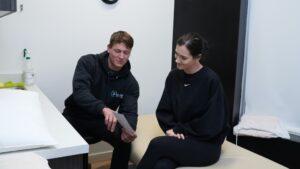About the Author
As a dedicated physiotherapist specializing in mobility enhancement in Surrey, BC, I am passionate about helping individuals improve their movement and quality of life. With a focus on evidence-based practices and personalized care, I strive to provide comprehensive support to individuals looking to enhance their mobility and independence. In this article, I will explore various physiotherapy techniques for improved movement and discuss their benefits for individuals in Surrey, BC.
Mobility is essential for performing daily activities, participating in recreational pursuits, and maintaining independence and quality of life. However, factors such as injury, aging, and medical conditions can affect one’s ability to move freely and efficiently. In Surrey, BC, mobility enhancement physiotherapy offers a range of techniques to help individuals improve their movement and regain functional independence. In this article, I will discuss various physiotherapy techniques for enhanced mobility and their benefits for individuals in Surrey, BC.
Understanding Mobility Enhancement
Mobility enhancement is the process of improving movement patterns, flexibility, strength, and balance to promote optimal function and independence. It involves addressing physical limitations, reducing pain, and restoring mobility to help individuals perform daily activities with ease and confidence. Surrey physiotherapy for mobility improvement focuses on identifying underlying impairments, optimizing movement mechanics, and implementing targeted interventions to enhance overall mobility and quality of life.
Comprehensive Mobility Assessment
The first step in mobility enhancement is a comprehensive assessment by a physiotherapist specializing in musculoskeletal health. During the assessment, the physiotherapist evaluates various aspects of mobility, including joint range of motion, muscle strength, flexibility, balance, and gait patterns. Based on this assessment, personalized treatment goals are established, and an individualized treatment plan is developed to address specific impairments and functional limitations.
Range of Motion Exercises
Range of motion exercises are designed to improve joint flexibility and mobility, allowing individuals to move more freely and efficiently. Physiotherapists in Surrey prescribe specific exercises targeting tight or restricted joints, incorporating passive, active, and assisted stretching techniques to gradually increase flexibility and reduce stiffness. By improving joint mobility, individuals can enhance their ability to perform daily activities and reduce the risk of injury.
Strength Training Programs
Strength training is essential for improving muscle function, stability, and endurance, supporting optimal movement and performance. Physiotherapists in Surrey design individualized strength training programs tailored to each individual’s specific needs, goals, and functional abilities. These programs may include exercises targeting key muscle groups involved in mobility, such as the legs, core, and upper body, using resistance bands, weights, or bodyweight exercises to build strength and stability.
Balance and Coordination Exercises
Balance and coordination are critical components of mobility, allowing individuals to maintain stability and control during various activities. Physiotherapists in Surrey incorporate balance and coordination exercises into treatment programs to improve proprioception, postural control, and dynamic stability. These exercises may include single-leg stance, tandem walking, heel-to-toe walking, and balance board exercises to challenge balance and promote neuromuscular control.
Gait Training and Walking Rehabilitation
Gait training focuses on improving walking patterns and mechanics to enhance mobility and functional independence. Physiotherapists in Surrey provide gait training and walking rehabilitation programs for individuals with gait abnormalities, weakness, or mobility impairments. These programs may include gait analysis, corrective exercises, assistive device training, and functional mobility drills to improve walking efficiency, endurance, and safety.
Neuromuscular Re-education
Neuromuscular re-education techniques are used to improve motor control, proprioception, and movement patterns, optimizing functional mobility and performance. Physiotherapists in Surrey utilize neuromuscular re-education strategies to address movement dysfunctions, muscle imbalances, and coordination deficits. These techniques may include proprioceptive exercises, motor control drills, and movement retraining tasks to enhance neuromuscular coordination and restore optimal movement patterns.
Assistive Device Prescription and Training
Assistive devices such as canes, walkers, and wheelchairs play a crucial role in supporting mobility and independence for individuals with mobility impairments. Physiotherapists in Surrey assess individuals’ mobility needs and prescribe appropriate assistive devices to optimize function and safety. Additionally, they provide training on proper device use, mobility techniques, and environmental navigation to ensure individuals can use assistive devices effectively and confidently in their daily lives.
Pain Management Strategies
Pain can significantly impact mobility and functional performance, hindering individuals’ ability to move comfortably and efficiently. Physiotherapists in Surrey incorporate pain management strategies into mobility enhancement programs to reduce discomfort and improve mobility. These strategies may include manual therapy techniques, modalities such as heat or cold therapy, therapeutic exercises, and ergonomic modifications to alleviate pain and optimize movement.
Functional Task Training
Functional task training involves practicing specific activities or movements relevant to individuals’ daily lives to improve functional capacity and independence. Physiotherapists in Surrey incorporate functional task training into treatment programs to address functional limitations and promote real-world application of mobility skills. These tasks may include activities such as getting in and out of bed, climbing stairs, lifting objects, and performing household chores, allowing individuals to regain confidence and autonomy in their daily activities.
In conclusion, physiotherapy offers a range of techniques for enhancing mobility and improving movement in Surrey, BC. By addressing underlying impairments, optimizing movement mechanics, and implementing targeted interventions, physiotherapists help individuals regain functional independence and improve their quality of life. If you or someone you know is struggling with mobility issues, I encourage you to explore the benefits of physiotherapy and discover how it can help you enhance your mobility and reclaim your independence.
As a physiotherapist specializing in mobility enhancement in Surrey, BC, I am dedicated to helping individuals improve their movement and quality of life. If you or someone you know is in need of mobility enhancement services, I invite you to reach out and explore how our personalized care and comprehensive strategies can help you achieve your mobility goals and live life to the fullest. Together, we can work towards a future where mobility limitations no longer hold you back. Next Article







